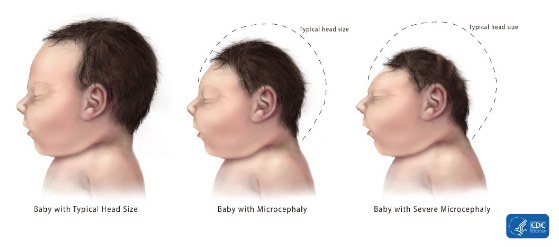Zika was THE thing you read about in terms of travel during the summer months of 2016. Spread primarily by Aedes mosquitoes that bit during the daytime, the symptoms of the virus, if they had any at all, were relatively mild for most people – just a few days of fever, rash, conjunctivitis (“pink eye”), muscle and joint pain, malaise (a general sense of feeling unwell, often with fatigue) and/or headache.
But if you contracted the Zika virus while pregnant, you ran the risk of your child having severe birth defects that included microcephaly (smaller than normal head, and intellectual disabilities) and other disabilities.

Nearly 85 countries, mainly in South and Central America, but also some in Southeast Asia, as well as several states in the U.S. reported incidents of Zika that year, and it with the number of cases, it was considered an epidemic.
Transmission dropped significantly during the summers of 2017 and 2018, but cases continued each year – just at a lower level.
And then we come to the summer of 2019…
“The good news is that we haven’t been hearing about Zika because transmission has been low,” said Dr. Eve Lackritz, who leads the Zika Task Force at the World Health Organization (W.H.O.), in a quote to the New York Times.
According to the Center for Disease Control (CDC), there have been minimal cases of Zika in the United States and its territories in 2019 – just 2 cases in the U.S. of travelers returning from an affected area, and 18 cases acquired through presumed local mosquito-borne transmission in Puerto Rico. Cases in other places around the world have also decreased significantly between 2017 and 2019.
In light of this, travel warnings have decreased but have not ended completely. Unfortunately, some areas of the world are not as fastidious in reporting Zika outbreaks. In other words, just because it’s not reported in small towns of some poorer nations doesn’t mean it doesn’t exist there. So people, particularly woman who are pregnant or who plan to become pregnant, are still warned to take precautions.
”The only way to avoid it is to not travel at all, but ultimately the risk will not be zero,” Dr. Lackritz continued. “People have to make their personal choices accordingly.”
So it’s apparently still out there, although the professionals are not 100% sure to what extent – but definitely significantly less than the summer of 2016.
W.H.O. info about Zika
C.D.C. info about Zika
Like this post? Please share it! We have plenty more just like it and would love if you decided to hang around and clicked the button on the top (if you’re on your computer) or the bottom (if you’re on your phone/tablet) of this page to follow our blog and get emailed notifications of when we post (it’s usually just two or three times a day). Or maybe you’d like to join our Facebook group, where we talk and ask questions about travel (including Disney parks), creative ways to earn frequent flyer miles and hotel points, how to save money on or for your trips, get access to travel articles you may not see otherwise, etc. Whether you’ve read our posts before or this is the first time you’re stopping by, we’re really glad you’re here and hope you come back to visit again!
This post first appeared on Your Mileage May Vary
